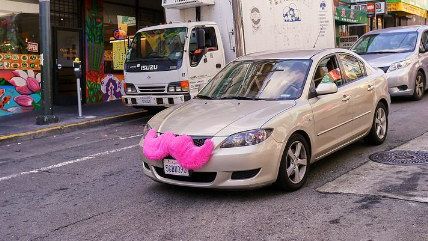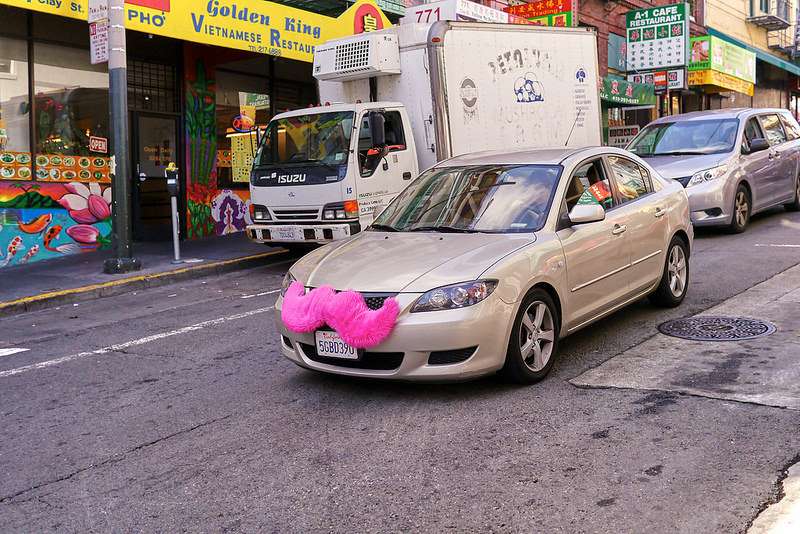Lyft, Uber Drivers Shouldn't Be Treated Like Employees
Ride-sharing companies simply don't control drivers like bosses control workers.


Recently the ridesharing company Lyft, Uber's largest competitor, settled a pending lawsuit for $12.25 million. Lyft can continue to classify its drivers as independent contractors—a designation that is crucial to the sharing economy's success. But the settlement may lead to additional difficulties for other sharing-economy companies.
The lawsuit, Cotter v. Lyft Inc., was a class action filed in the Northern District of California. The plaintiffs were Lyft drivers who claimed they were incorrectly classified as independent contractors instead of employees. Because of this, they argued that Lyft had to cover their driving expenses, pay additional wages, and provide employment benefits.
Any Lyft driver who completed at least one ride in California between May 25, 2012 and the settlement approval date will be counted as part of the settlement class. Though exact numbers are not yet known, Ted Frank, the director of the Center for Class Action Fairness, estimates that after legal fees each driver will receive less than $100.
Lyft also agreed to update the section of its terms and conditions that cover dismissing drivers to make them more specific. Previously, the company could take drivers off its platform for any cause.
One reason that the plaintiffs agreed to settle with Lyft was that they were "mindful of the inherent challenges of proof and the strength of the defenses to the alleged claims." Although recent National Labor Relations Board and Labor Department guidelines have muddied the waters, current labor law holds that ride-sharing drivers are independent contractors, not employees. Lyft and other sharing-economy companies do not control their workers' hours and other important facets of the job, so drivers are independent. Many drivers have other jobs, and Uber is the main source of income for only 20 percent of its drivers.
Because ridesharing drivers are categorized as independent contractors, the plaintiffs are not entitled to any of their demands under California and U.S. law. In order for Cotter to win, drivers would have had to be determined to be employees by the court, something that was not done.
There is little from this development that can apply to other similar lawsuits. As the settlement makes clear, "There has been no final determination by any court as to the merits of the claims asserted by Named Plaintiffs against Lyft, nor has there been any final determination as to whether a class should be certified, other than for settlement purposes only." In other words, this settlement should not be used to determine future employment classification court decisions—but it probably will be.
Though there is no legal precedent set by the settlement, other sharing-economy companies will face increased pressure to settle when they face class action lawsuits. This will raise the costs of sharing-economy services, costs that will be passed on to consumers.
Uber is involved in a similar California class action lawsuit O'Connor v. Uber Technologies Inc. Uber has a higher chance of losing this case since the judge rejected the company's arbitration agreement with its drivers. This type of arbitration agreement helped to facilitate Lyft's settlement.
Flexibility is vital to the sharing economy. While some workers use these platforms full time, the vast majority use them for part-time work or supplemental income. About eight in 10 Lyft drivers choose to drive 15 hours a week or less, and half of Uber drivers use the platform for less than 10 hours a week. Independent contractor status allows the decision of when or for how long to work to be controlled by drivers.
Unlike employees, independent contractors are not entitled to minimum wage, overtime pay, unemployment insurance, or workers' compensation. But extending these employment protections that were sought by the plaintiffs makes little sense. Since Lyft and Uber do not control workers' hours, and determining how much someone is actually working solely for the companies is difficult (if not impossible), minimum wage and overtime pay requirements are inapplicable to the companies' workers. Additionally, one of the benefits of the sharing economy is that supply can easily fluctuate to meet an ever-changing demand.
Sharing-economy work is often transient or done in addition to other jobs, so there is little reason to compel Lyft and Uber to fund unemployment insurance benefits. Ridesharing drivers also work off-site and use their own vehicles. Hence, companies should not be required to provide workers' compensation.
Many independent contractors would prefer to have access to some portable benefits. Portable pensions already exist in the form of Individual Retirement Accounts and Simplified Employee Pension Plans. Portable health insurance, although expensive, exists through the Affordable Care Act. Social Security provides disability insurance. Regulators should encourage insurance companies to offer broad plans to meet professionals' needs.
The Labor Department and the National Labor Relations Board are trying to change the previously-clear distinction between employees and independent contractors. This leaves courts with the impossible task of dealing with these two agencies' guidelines as lawsuits work their way through the courts. This uncertainty harms many companies and their workers, both inside and outside the sharing economy. Congress should pass a law clarifying the issue before these lawsuits grow out of control.
The sharing economy's growth is a bright spot in today's tepid economy. Workers value the freedom and flexibility that partnerships with sharing-economy companies provide. Congress needs to wake up to the realities posed by a 21st century economy and use its powers to rein in the Labor Department and National Labor Relations Board. Lyft's settlement does nothing to achieve this goal, nor will future legal battles.


Show Comments (32)